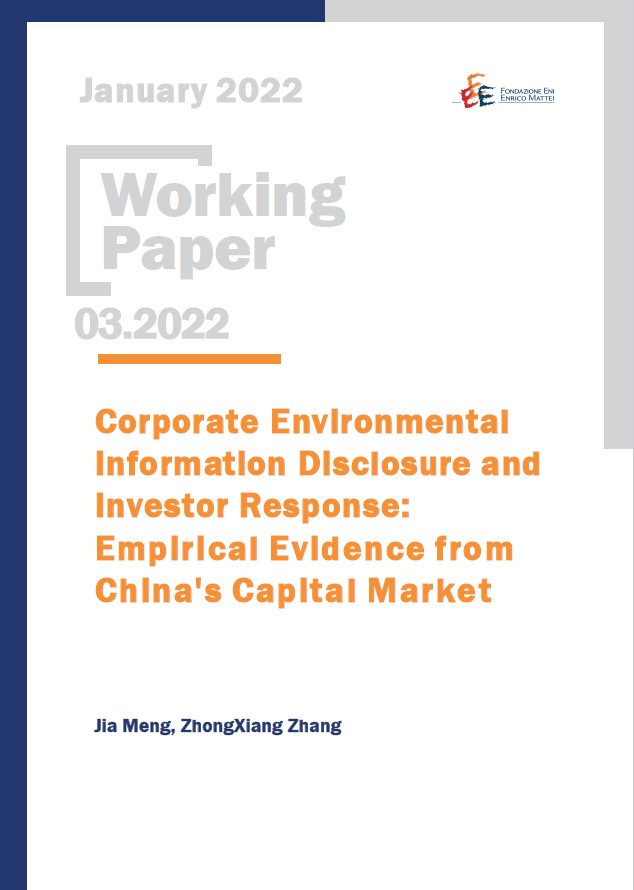Corporate Environmental Information Disclosure and Investor Response: Empirical Evidence from China’s Capital Market

28.01.2022
Jia Meng, Ma Yinchu School of Economics, Tianjin University, Tianjin, China; ZhongXiang Zhang, China Academy of Energy, Environmental and Industrial Economics, China
Q48, Q53, Q58, P28, G14
Environmental information disclosure, Investor response, Corporate annual reports, Fama-french five factor model, China's capital market
This paper aims at analyzing the impact of corporate environmental information disclosure from the perspective of investors. To that end, we have collected environmental information disclosure data of all Chinese listed companies from 2004 to 2020 and controlled the impacts of annual reports on investor response. We apply the Fama-French five-factor model to calculate the accumulative abnormal returns of stocks during the event window period. Our results suggest that environmental information disclosure can have a significant negative response among investors when we take the impacts of annual reports into consideration. Moreover, we find that heavy-polluting companies and companies with high institutional shareholding are more likely to have negative reactions from investors. Notably, the negative response is found significant after the Ambient Air Quality Standard was revised in 2012. Furthermore, high environmental expenditure and strict environmental regulation will result in negative investor responses, while the political connection can alleviate the negative impacts of environmental information disclosure. The results remain robust in different ways. The findings suggest that listed companies may lack the incentive to engage in environmental management and are reluctant to disclose environmental information. Consequently, the government should formulate a mandatory disclosure policy and provide administrative support to environmentalfriendly companies. Besides, companies should improve innovation technology to cut down environmental costs. Meanwhile, investors should be aware of the importance of corporate environmental behaviors and realize the long-term benefits of environmental management of listed companies.
***
Suggested citation: J. Meng, Z. Zhang (2022), ‘Corporate Environmental Information Disclosure and Investor Response: Empirical Evidence from China’s Capital Market’, Nota di Lavoro 03.2022, Milano, Italy: Fondazione Eni Enrico Mattei
